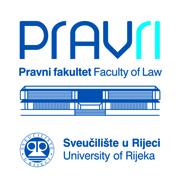CONFISCATION OF PECUNIARY GAIN IN THE CONTEXT OF INTERNATIONAL REGULATIONS AND COMBATING BRIBERY
DOI:
https://doi.org/10.30925/zpfsr.38.1.20Keywords:
corruption; bribery; assets; pecuniary gain; pecuniary gain acquired by a criminal offense; confiscation of pecuniary gain; extended confiscation of pecuniary gainAbstract
Appropriate reaction on bribery criminal offenses is of a great importance for
every legal order. The success of this reaction, and of the confi scation of pecuniary gain,
as its very important aspect, affects the overall political and economic development of
a country. Effective (extended) confi scation of pecuniary gain is particularly important
when it comes to criminal offenses of (passive) bribery. These criminal offenses are
based on “corruption agreement” that aims to “satisfy” certain (material) interests and
benefi ts for both parties of the “agreement”.
Appropriate legal reaction on bribery criminal offenses, as well sa the
confi scation of pecuniary gain by these criminal offense, depends on the attitudes of a
certain society and its “establishment”.
This paper deals with (extended) confi scation of pecuniary gain acquired
by criminal offense, in the context of bribery offenses, by presenting domestic
and international regulations and case law, and analyzing compliance of domestic
regulations with international regulations.
Additional Files
Published
How to Cite
Issue
Section
License
Collected Papers is an open access journal. Journal does not charge article processing charges (APC) to authors. It is licensed under CC BY-NC licence 4.0.
Collected Papers of the Law Faculty of the University of Rijeka" is an Open Access journal. Users are allowed to read, download, copy, redistribute, print, search and link to material, and alter, transform, or build upon the material, or use them for any other lawful purpose as long as they attribute the source in an appropriate manner according to the CC BY licence.
The papers published in "Collected Papers of the Law Faculty of the University of Rijeka" can be deposited and self-archived in the institutional and thematic repositories providing the link to the journal's web pages and HRČAK.
Upon acceptance of the manuscript for publication by this journal, the author can publish same manuscript in other journals only with the permission of the Editorial Board (secondary publication). A repeated publication should contain a notice as to where the manuscript was originally published.



